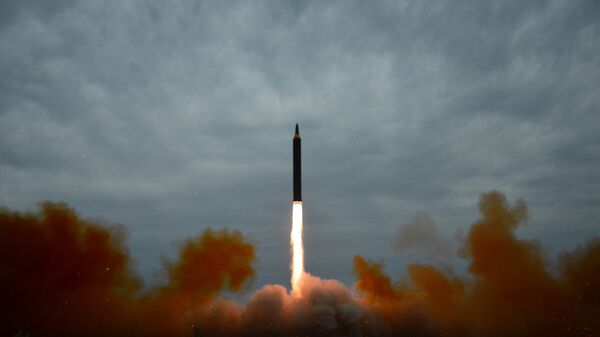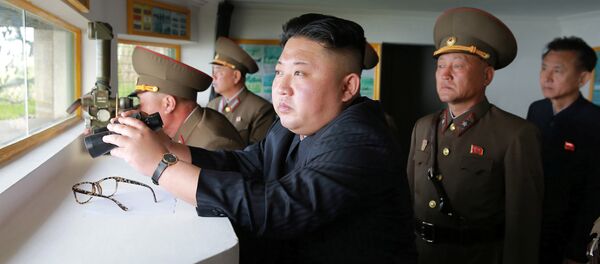"We determined that procurement activities have been carried out from [the embassy] that are, in our view, done with a view to the missile program and sometimes also for the nuclear program," said Hans-Georg Maassen, head of the Federal Office for the Protection of the Constitution (BfV), Germany's domestic intelligence agency.
In a Monday interview with public broadcaster NDR, Maassen said that his agency attempted to stop weapons smuggling through the embassy. "When we see such things, we stop them. But we cannot guarantee that we spot and block each attempt," said Maassen.
He did not say what parts the North Koreans had allegedly acquired, but he did note that North Korea had skirted restrictions by procuring "dual-use" parts: items that have both civilian and military applications. The goods had been acquired "via other markets" or by "shadow firms" in Germany.
The North Korean embassy commented on Monday that the charges were "simply not true."
"We reject and distance ourselves from local media reports over the weekend that our embassy was used to obtain technology secretly for any nuclear weapons program," the embassy's spokesperson said.
As part of the far-ranging sanctions levied against North Korea since the dramatic expansion of their missile and nuclear programs began in early 2017, the UN has restricted North Korea from purchasing dual-use parts.
The most recent round of UN sanctions, passed in December, were intended to reduce petroleum imports by North Korea by up to 90%. They also banned other countries from purchasing North Korean goods such as machinery and electrical equipment.
On Friday, the UN Security Council reported that Pyongyang flouted sanctions by illegally trading with buyers in China, Malaysia, Russia, South Korea and Vietnam along with military cooperation with Myanmar and Syria.
"The DPRK [North Korea] is already flouting the most recent resolutions by exploiting global oil supply chains, complicit foreign nationals, offshore company registries and the international banking system," the report reads, adding that the charges were under investigation and the alleged activities would be a violation of UN sanctions if proven accurate.
The North Korean embassy has not commented on the allegation. China, Myanmar and Syria all individually denied the charges of illicit cooperation.
In 2017, North Korea tested what they claimed to be a hydrogen bomb, with yield estimates ranging from 50 to 280 kilotons. They also conducted 16 ballistic missile tests, including two provocative launches that flew over Japanese territory in August and September.





